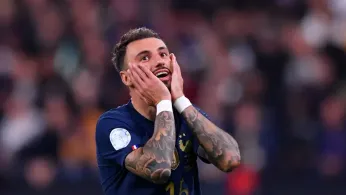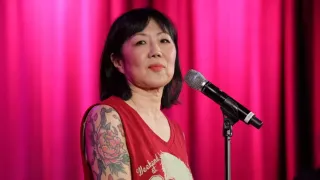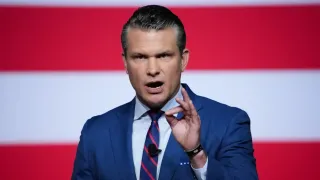
5 hours ago
French Soccer Captain Jonathan Clauss Publicly Confronts His Own Fans Over Homophobic Chants
READ TIME: 3 MIN.
The Ligue 1 fixture between OGC Nice and Paris FC on September 29, 2025, was overshadowed by repeated outbursts of homophobic chants from a section of the home supporters, bringing the game to a standstill and drawing sharp rebuke from players and officials alike. The incident took place at Nice’s Allianz Riviera stadium, where members of the Populaire Sud, an ultras section of the stadium, initiated chants targeting visiting Paris FC fans late in the match .
In the 83rd minute, the referee paused play as the offensive chants grew louder, using the stadium’s public address system to urge fans to cease. Despite repeated warnings, the chants persisted, prompting a second halt in proceedings .
It was at this point that Jonathan Clauss, captaining OGC Nice on the night, stepped forward. Addressing the crowd directly, Clauss pleaded with his own supporters to stop the discriminatory behavior, emphasizing the need for respect and inclusivity in the stadium environment . Only after Clauss’s intervention did the chanting subside enough for the match to continue.
In his post-match comments, Clauss was unequivocal: “There are things that should not be heard inside a stadium, even elsewhere. We are very happy that the supporters are there every weekend, but these messages… no,” he told reporters, condemning the chants and reaffirming the club’s responsibility to maintain an inclusive atmosphere .
The match ultimately ended in a 1-1 draw, but the focus post-game was squarely on the disruption and the implications for French football’s ongoing struggle to combat homophobia and other forms of discrimination in stadiums . Across social media and sports media platforms, Clauss’s intervention was widely shared and praised by LGBTQ+ advocates, who see such actions as essential in challenging the normalization of slurs and abuse in sport .
Outsports, a leading LGBTQ+ sports news outlet, highlighted the significance of a team captain taking public responsibility and directly addressing his own supporters in real time, calling it a “pivotal moment for accountability and allyship on the pitch” .
Homophobic chanting in European football stadiums has been a persistent issue, regularly drawing fines, stadium bans, and public condemnation from clubs, leagues, and advocacy groups alike. Despite campaigns by both the French Football Federation and Ligue 1 to promote inclusion and punish hate speech, incidents continue to arise, highlighting deep-rooted challenges in changing fan culture .
The actions taken by Jonathan Clauss reflect a growing movement among players willing to confront discrimination directly, even at the risk of alienating sections of their own fanbase. Such moments are increasingly seen as critical to shifting norms within the sport, especially as LGBTQ+ visibility and advocacy within football have gained momentum in recent years.
LGBTQ+ organizations across France and internationally have voiced both support for Clauss and concern at the persistence of such incidents. “When players use their platform to call out hate, it sends a powerful message that discrimination has no place on or off the field,” said one statement from a leading French LGBTQ+ sports alliance .
Advocates stress that while disciplinary measures are important, lasting change will require continued education, allyship from players, and a willingness from clubs to hold their own communities accountable. The swift amplification of Clauss’s actions on social media, including thousands of shares and supportive comments from LGBTQ+ fans and allies, demonstrates the impact of visible leadership in the push for equality .
The events in Nice have reignited debate about the role athletes should play in challenging prejudice, with many calling for clubs and leagues to offer greater training, support, and protections for players who speak out. As more LGBTQ+ athletes come out and as allies like Clauss take public stands, the expectation is that football culture can evolve toward greater safety and inclusion for all participants, regardless of sexual orientation or gender identity.
The incident stands as a reminder of both the progress made and the work still required to ensure that stadiums are welcoming spaces for everyone. As the season continues, advocates hope that Clauss’s intervention will serve as a model for other leaders in sport—and for supporters who are committed to fostering a culture of respect and acceptance.






